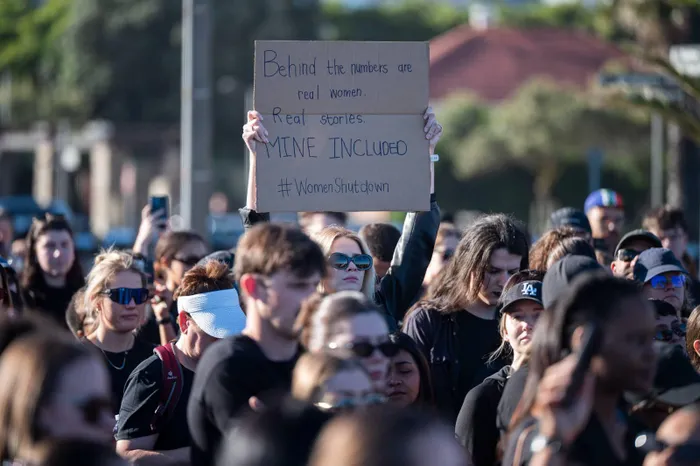
Activists say low conviction rates for protection-order violations highlight ongoing failures in the fight against gender-based violence.
Image: Armand Hough/ Independent Newspapers
Gender-based violence activists say new data on protection-order violations confirms what survivors have warned for years — the system meant to protect them is failing. Their alarm follows a damning DA release showing a 13.6% conviction rate in the Western Cape and mounting cases in which women were harmed or killed despite seeking court protection.
The DA said it was “deeply concerned and disappointed at the persistent failures of SAPS to protect survivors who turn to the police for help”.
A response by the South African Police Service to a DA parliamentary question revealed 47 457 charges for protection-order violations between 2020 and 2025 in the Western Cape, with just 6 486 convictions.
“This equates to a 13.6% conviction rate, which is unacceptably low when the safety of those who have already sought protection orders is directly threatened,” the DA said.
The party added: “Gender-based violence is a national crisis, and without stronger accountability, the perpetrators of this violence will continue to walk freely among us.”
DA MPP Benedicta van Minnen said: “If South Africa is to protect the vulnerable, conviction rates must increase, investigations must be thorough, and SAPS must be held to the highest standards of professionalism. Violators of protection orders cannot be allowed to roam the streets without consequence while survivors live in fear.”
Action Society’s Kaylynn Palm said the figures “are not surprising – and unfortunately it mirrors exactly what we see on the ground”.
“The data confirms what survivors and activists already know: the criminal justice system is collapsing, and women and children are paying the price,” she said. “A 13.6% conviction rate is not a statistic; it is a national disgrace it’s clear that the system is failing survivors.”
Palm said the system was failing survivors “at the worst possible time”: “People are taking the brave step to report crimes, and in some cases its not easy, especially for women to do so, yet SAPS and the justice system repeatedly fail to do the bare minimum: collect evidence, build cases, and prosecute offenders.”
She warned: “At this rate, the protection orders aren’t even worth the paper its printed on.”

Nadine Esterhuizen was allegedly murdered by her estranged girlfriend Corrine Jackson.
Image: File
Cases in Western Cape courts continue to echo the failures activists describe. Elsies River mother Hermalise Wenn, who had a protection order, and was allegedly murdered by her boyfriend who was out on parole. Activists said she “did everything the system asks of women at risk, and yet the system was unable to protect her”.
Victim, Nadine Esterhuizen had also secured a protection order before being fatally stabbed, as the trial against her estranged girlfriend Corrine Jackson continues.

Hermalise Wenn was allegedly beaten to death by her partner.
Image: File
The Department of Justice referred enquiries to the National Prosecuting Authority. NPA spokesperson Eric Ntabazalila said: “It is difficult for us to respond to these statistics which we do not even know where they were generated."
Police Oversight and Community Safety said: "It will always be concerning when statistics point to a very low conviction rate for reported crime incidents, even more so when these incidents involve gender-based violence (GBV). South Africa continues to struggle with extremely high levels of GBV and femicide, and despite many interventions, these crimes remain widespread and deeply entrenched. This places immense pressure on the entire criminal justice system to ensure that survivors are protected and that perpetrators are held accountable."
"As with any criminal case, a formal complaint does not automatically translate into guilt. Each case must follow due process, and the courts must weigh the evidence before them to arrive at a decision based on the merits. In many instances, challenges begin at the point of reporting: victims are often not fully informed or empowered when they open cases, which can impact the strength of evidence later presented in court."
"In addition, the Department conducts public information sessions to educate community safety structures and the broader community on where and how to lodge complaints when they are dissatisfied with the quality of police service. The Department remains committed to driving improvements across the policing value chain so that survivors of GBV receive the protection, dignity, and justice they deserve."
Related Topics: